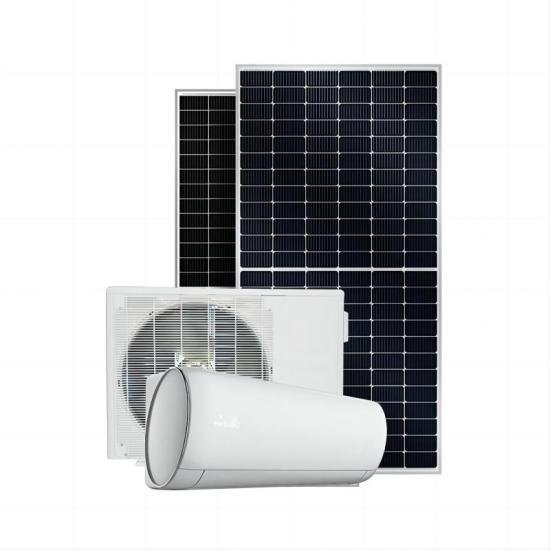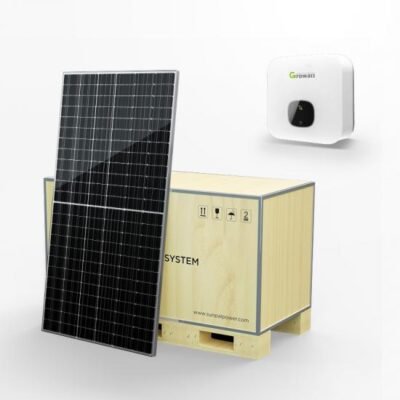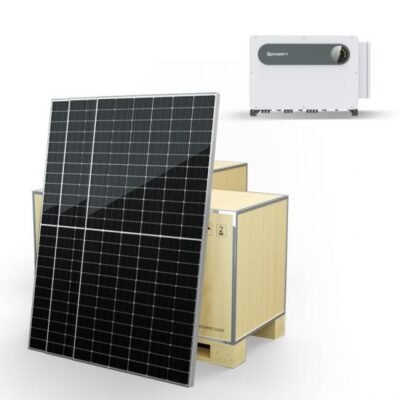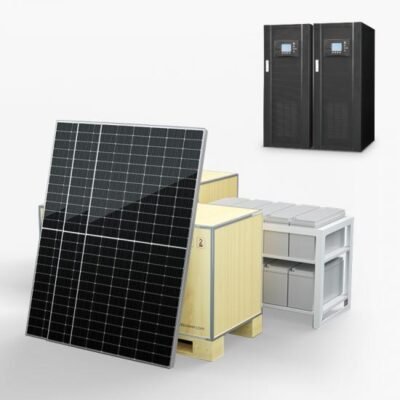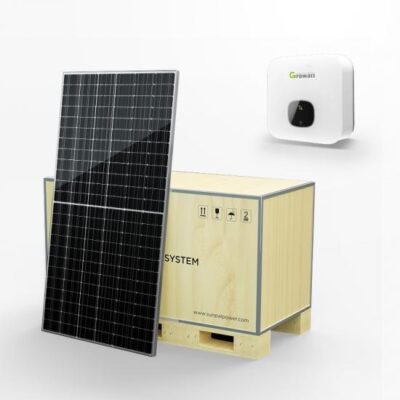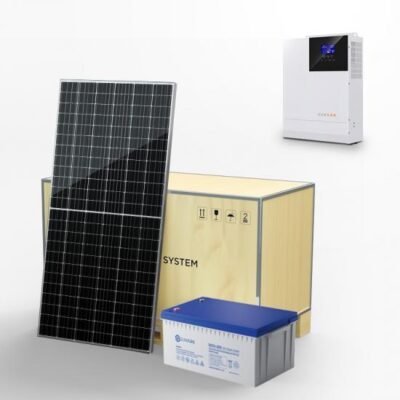
SunEvo Hybrid Solar Air Conditioning Kit AC DC Compatible For Home Use
Solar air conditioning refers to a system that uses solar power to provide cooling and air conditioning in buildings. It is an environmentally friendly alternative to traditional air conditioning systems that rely on electricity generated from non-renewable energy sources.
- Solar panel voltage:DC90-380V
- Maximum Solar Charging Current:15A
- AC Power Connected:180-240V(50/60Hz)
- Refrigerant:R32
- Compressor:GMCC DC Drive Mode Rolling Rotor Type
- Connection:Flare
- Product categories
how can we help you
Description

A solar air conditioning system typically consists of solar panels, a heat exchanger, a refrigerant, and an air distribution system. Here’s how it generally works:
Solar panels: Photovoltaic (PV) solar panels are installed on the roof or another suitable location to capture solar energy.
Solar energy conversion: The solar panels convert sunlight into electricity through the photovoltaic effect. This electricity is then used to power the air conditioning system.
Thermal energy generation: In some solar air conditioning systems, the solar energy is used to generate thermal energy instead of electricity. This can be done through methods such as solar thermal collectors or concentrating solar power.
Heat exchanger: The thermal energy generated by the solar panels or solar collectors is transferred to a heat exchanger. The heat exchanger extracts heat from a heat-absorbing medium, often a refrigerant.
Refrigeration cycle: The extracted heat is used to drive a refrigeration cycle, similar to conventional air conditioning systems. The refrigerant absorbs heat from the indoor air and releases it outside, resulting in the cooling of the indoor space.
Air distribution: The cooled air is distributed throughout the building using fans or ductwork, providing a comfortable indoor environment.
Solar air conditioning offers several advantages. It reduces reliance on grid electricity, potentially lowering energy costs and decreasing the carbon footprint. By utilizing renewable solar energy, it contributes to sustainability and environmental conservation. However, it should be noted that solar air conditioning systems may require additional components, such as energy storage systems or backup power sources, to ensure consistent operation when sunlight is limited.
It’s important to consult an HVAC professional or specialized company for specific details, as solar air conditioning systems can vary in design and implementation based on the building’s size, location, and cooling requirements.
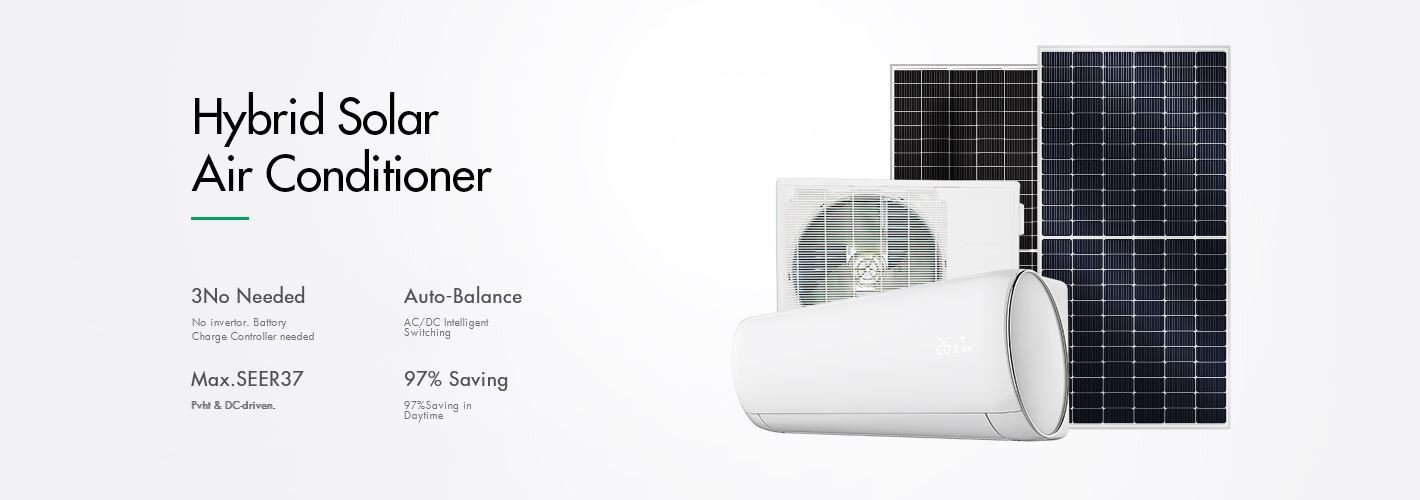
Solar air conditioning refers to the use of solar energy to power the cooling process of an air conditioning system. Traditional air conditioning systems rely on electricity from the grid, which often generates power from fossil fuels. Solar air conditioning systems utilize the abundant and renewable energy from the sun to operate, making them more environmentally friendly and potentially reducing energy costs.
The market for solar air conditioning has been growing steadily in recent years due to increasing awareness of environmental issues and the benefits of renewable energy. Solar air conditioning systems are particularly popular in regions with abundant sunlight and high cooling demands, such as tropical and subtropical areas.
There are different types of solar air conditioning systems available in the market, including photovoltaic (PV) systems and solar thermal systems. PV-based systems use solar panels to convert sunlight into electricity, which powers the air conditioning unit. Solar thermal systems, on the other hand, use solar collectors to capture heat from the sun and then utilize it for cooling purposes.
The market for solar air conditioning systems has been driven by factors such as government incentives, environmental regulations, and the desire to reduce electricity bills. The increasing affordability and efficiency of solar technologies have also contributed to the growth of this market.
However, it’s important to note that the adoption of solar air conditioning is still relatively limited compared to conventional air conditioning systems. Challenges such as higher upfront costs and the need for proper system sizing and installation can affect the wider adoption of solar air conditioning. Nonetheless, as solar technology continues to evolve and become more cost-effective, the market for solar air conditioning is expected to expand in the coming years.
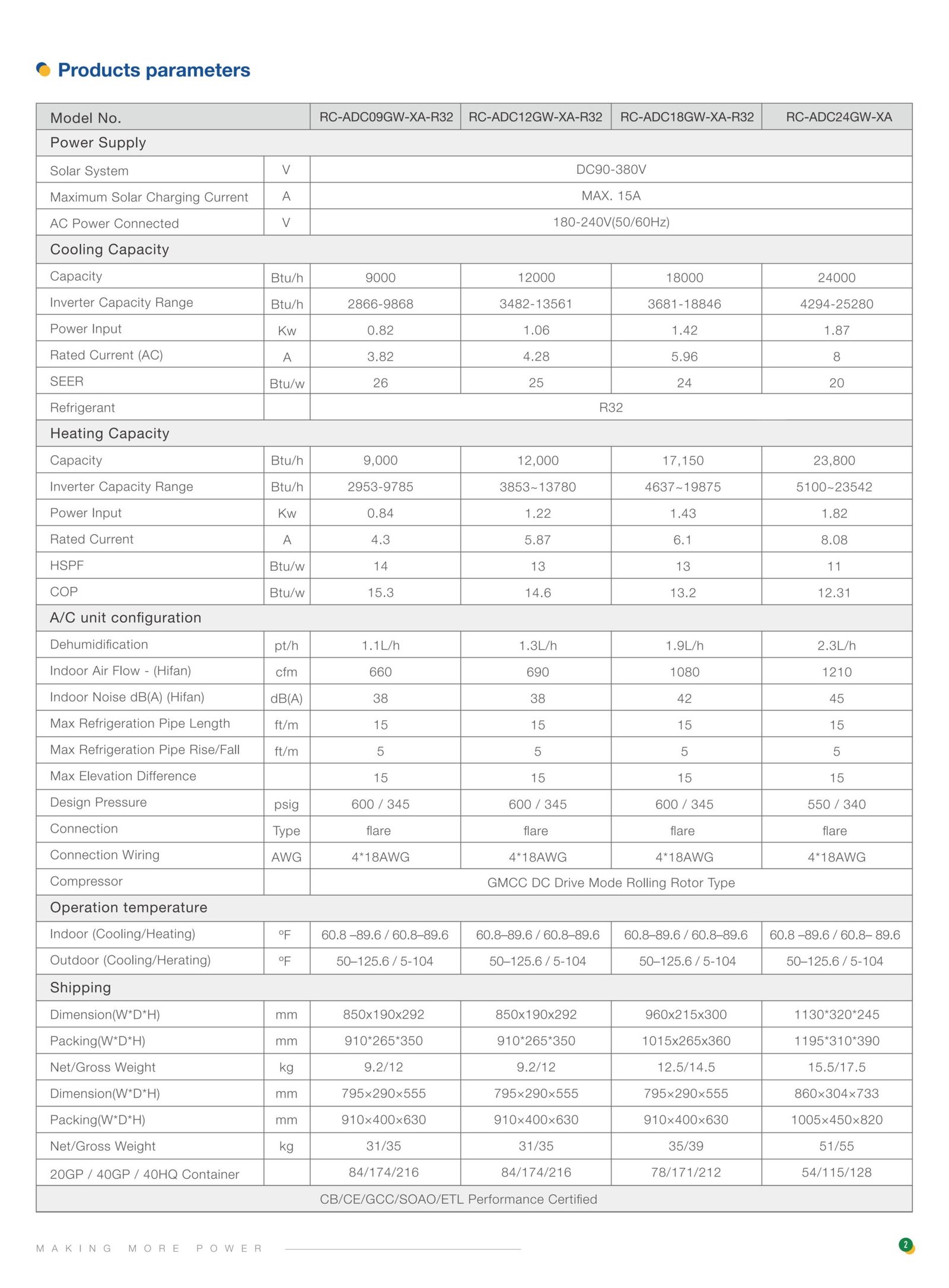
Solar air conditioning refers to a system that uses solar power to operate the cooling function of an air conditioning unit. Traditional air conditioning systems typically rely on electricity from the grid, whereas solar air conditioning harnesses energy from the sun using photovoltaic (PV) panels or solar thermal collectors.
The market for solar air conditioning has been growing steadily in recent years due to several factors. Here are some key points about the market:
Renewable Energy: Solar air conditioning systems are part of the broader trend toward renewable energy and sustainable technologies. As the world becomes more conscious of the environmental impact of energy consumption, solar air conditioning provides an eco-friendly alternative to traditional cooling methods.
Energy Cost Savings: Solar air conditioning can significantly reduce energy costs since it utilizes free solar energy instead of relying solely on electricity from the grid. By reducing or eliminating electricity consumption, users can save money on utility bills, particularly in regions with abundant sunlight.
Independence from the Grid: Solar air conditioning systems can operate independently from the electrical grid when equipped with battery storage solutions. This is particularly beneficial in areas with unreliable or expensive grid electricity, as users can enjoy continuous cooling even in the event of a power outage.
Government Incentives and Policies: Many governments and utilities offer financial incentives, tax credits, or rebates to promote the adoption of renewable energy technologies, including solar air conditioning. These incentives can make the initial investment more affordable and accelerate market growth.
Scalability: Solar air conditioning systems can be designed to fit various applications, from residential homes to commercial buildings. They can provide cooling for individual rooms or entire structures, making them adaptable to different cooling needs and sizes.
Environmental Benefits: Solar air conditioning systems help reduce greenhouse gas emissions since they generate electricity from a clean, renewable source. By using solar power instead of electricity produced from fossil fuels, these systems contribute to mitigating climate change and reducing reliance on non-renewable resources.
It’s worth noting that the specific market conditions for solar air conditioning may vary by region, depending on factors such as sunlight availability, energy pricing, government policies, and consumer demand.
FAQs:
Q1: Do you support OEM/ODM?
A:Definitely, OEM&ODM service is supported with a certain quantity,including customize logo,package and label;
Q2: What’s the production time?
A: The production time is normally 15 working days. but we will always prepare some stocks for popular models.
Q3: Can you provide DDP service?
A:Yes, if you are a personal customer and don’t want to deal with the customs, we can provide DDP service to your address.
Q4: What about the warranty and how to claim?
A: Warranty period are 5 years since you receive the product, our professional after-sales team will deal with all warranty issues.
Related Tags:
Leave A Message
If you are interested in our products and want to know more details,please leave a message here,we will reply you as soon as we can.
Subject :
